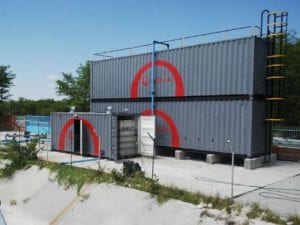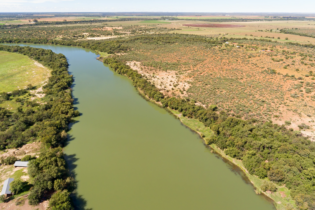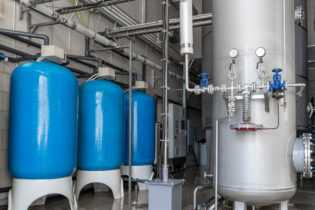With over 50 000 litres of untreated sewage estimated to flow into South Africa’s rivers every second, underperforming sewage infrastructure poses a significant threat to our natural water sources.
South Africa is currently faced with the challenge of not only maintaining its existing sewage treatments works but also constructing new infrastructure to cater to an expanding population. With less than 10% of the country’s sewage plants currently meeting compliance industry leaders are turning to innovation to help improve access to sanitation and sewage services. For water solutions specialist Veolia Water Technologies, a new, resilient and efficient approach to sanitation resource management is required in overcoming the national backlog confronting our sewage treatment infrastructure.Modular Sewage Treatment Plants
From meeting the needs of isolated communities, to supplying facilities like hospitals, airports and remote mining camps with adequate sewage treatment services, modular Sewage Treatment Plants (STP™) have proven a reliable, cost-effective alternative to in-ground plants, and can be supplied in a fraction of the time. “These packaged plants are based on trickling filter technology, a simple but extremely versatile technology that is both robust and easy to operate,” explains Veolia Water Technologies South Africa’s Chris Braybrooke.“Its ability to accommodate highly variable inflows is an additional benefit, and the sludge, which is digested to approximately a third of its original volume, only has to be removed every two to three years.”
The major treatment components of the STP™ are screening, anaerobic digestion, carbon removal and nitrification, sludge removal and disinfection in a chlorine contact tank. Pre-assembled and Factory-Acceptance Tested (FAT) at the company’s Water Techno Products production facility in Sebenza, Johannesburg, Veolia’s STP™ can be manufactured to order in as little as 12 weeks, to treat domestic sewage to RSA General Standards for Discharge.





